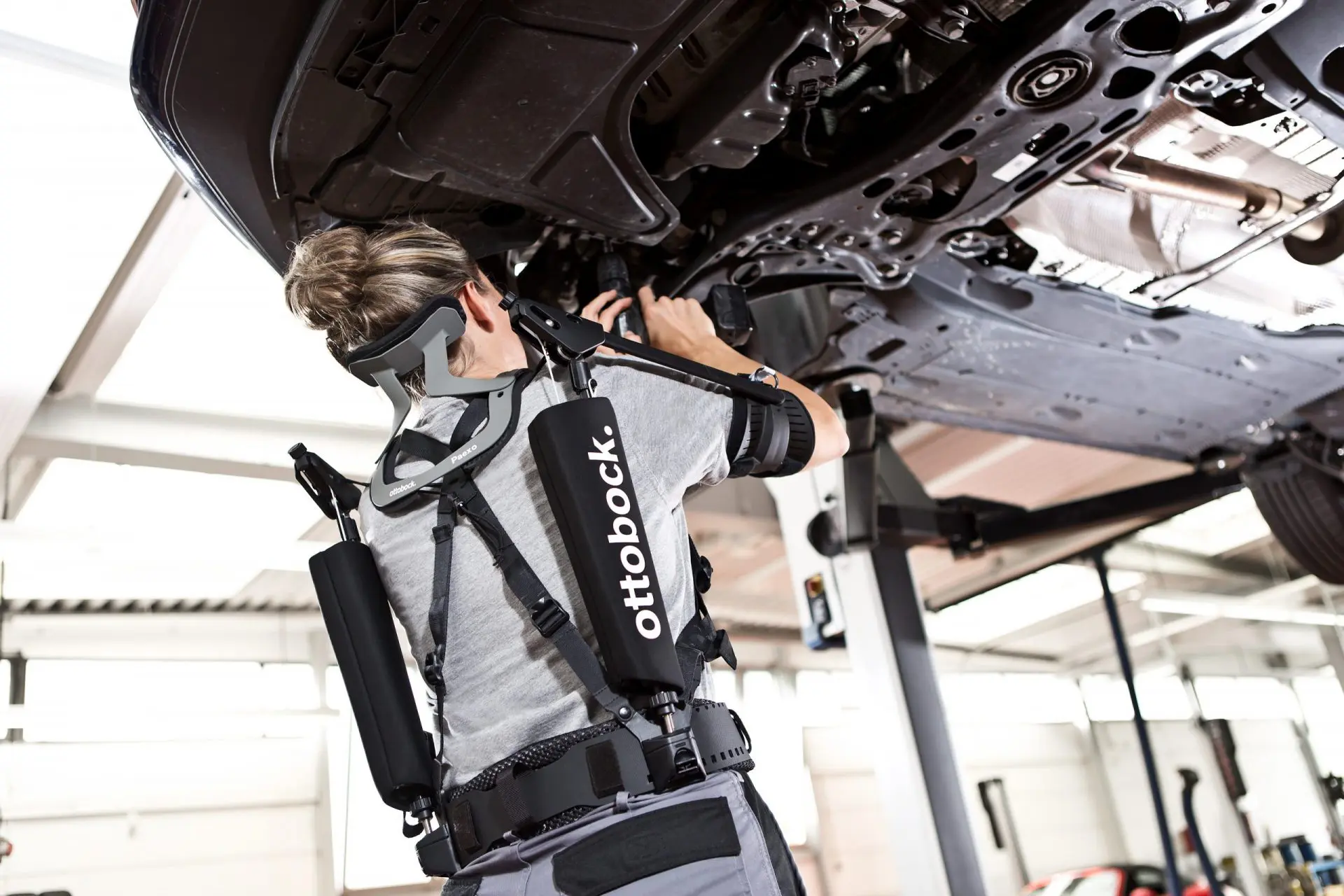Amerisure Launches an Exclusive Pilot for Policyholders
Work-related musculoskeletal disorders (MSDs) are a leading cause of occupational injuries and illnesses in the U.S. These disorders develop when workers are exposed to biomechanical forces that regularly exceed the worker’s physical capabilities, such as lifting, extreme postures and extended efforts. Overhead work is recognized as a leading cause of work-related musculoskeletal disorders to the shoulder, arm and neck.
Passive Exoskeletons to Prevent MSDs
An exoskeleton is a wearable device that provides physical assistance to the wearer through structural support and assistive torques. The devices are worn on the worker’s body and follows their movements. Because of the tight fit and following of the wearer’s body movements, job functions rarely need to be altered to accommodate the exoskeleton.
Passive exoskeletons are one device type that requires no energy source and are lighter and less bulky than powered exoskeletons. Passive exoskeletons take advantage of mechanical activation, springs and dampers to store energy and transfer force to the heavier muscles of the body. These actions can significantly remove physical strains on the arms, shoulders and neck while performing overhead work.
Amerisure Pilot Program
Amerisure is beginning a pilot program to evaluate the use and benefits of exoskeletons in the workplace. As part of the pilot, Amerisure has partnered with Ottobock to provide shoulder exoskeletons to support policyholders performing overhead work. The exoskeleton provides shoulder and arm support and fits workers from 5’2 to 6’2 with adjustable support for the overhead work.
“The exoskeleton pilot will enable the company to obtain feedback from policyholders on the acceptability by workers, benefits of use and, ultimately, lead to improved worker safety for more policyholders,” said Dave Galbraith, Amerisure’s AVP Risk Management and Technical Lead.
For more information or to participate in our pilot programs, contact your risk management consultant.



